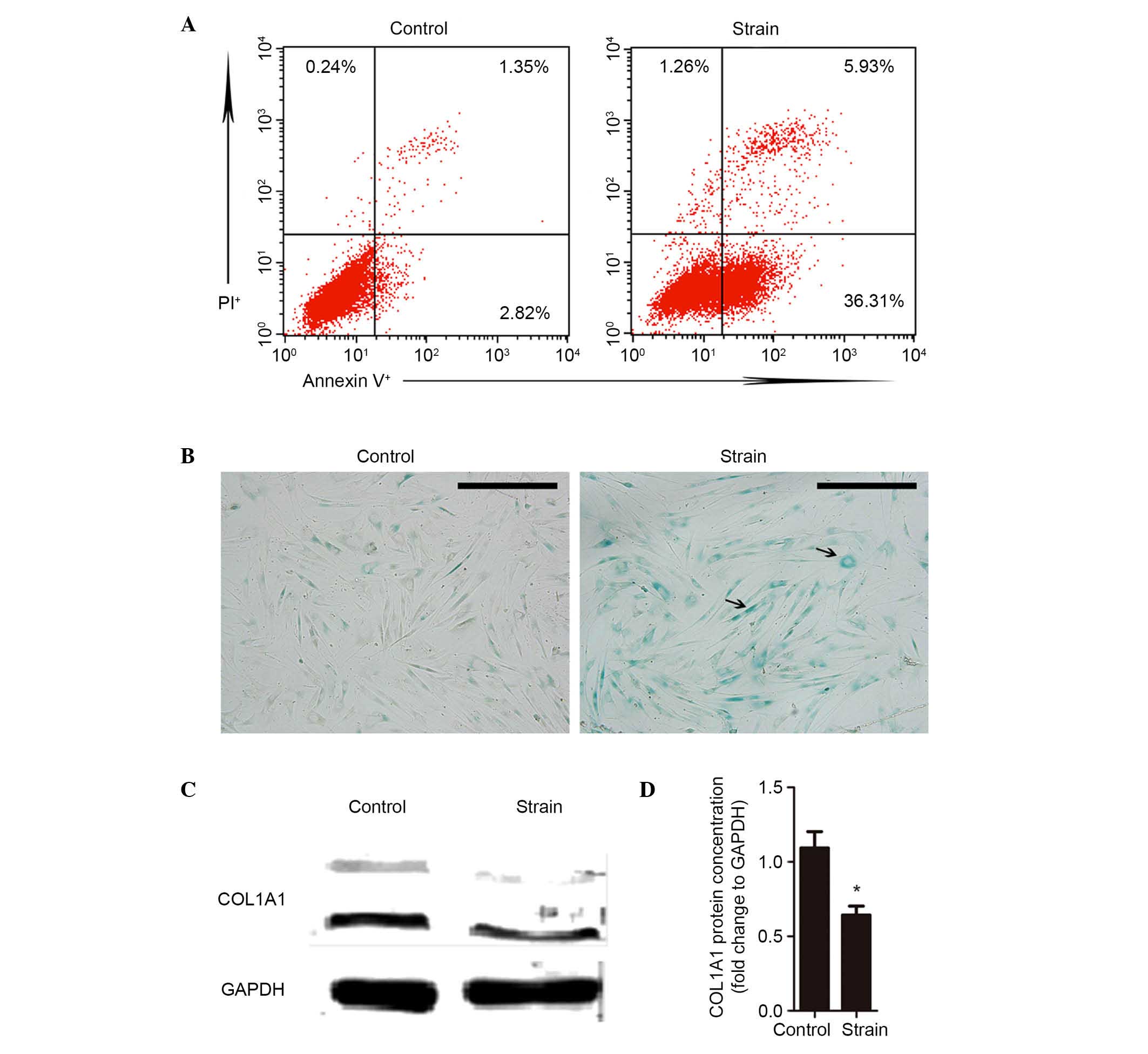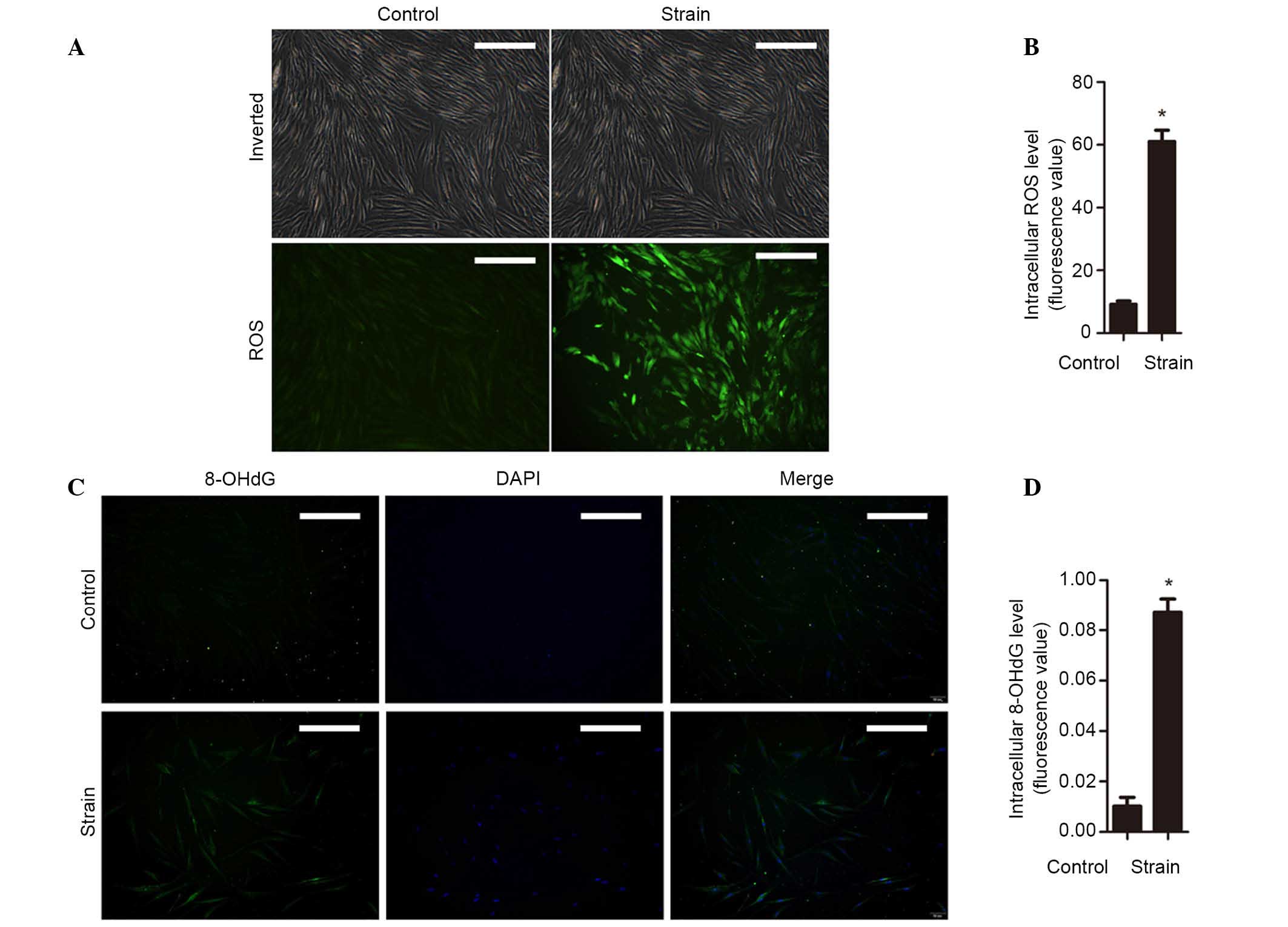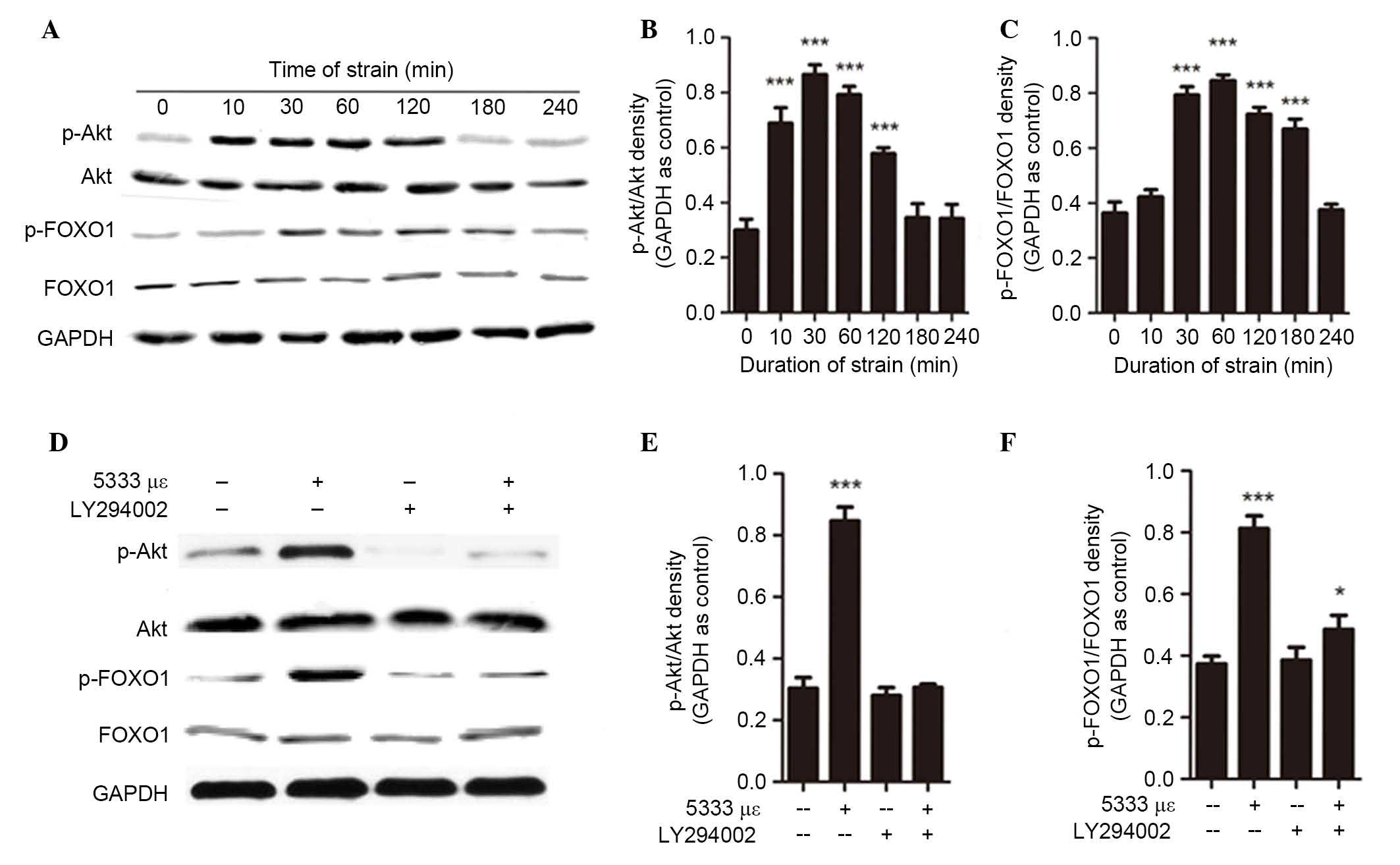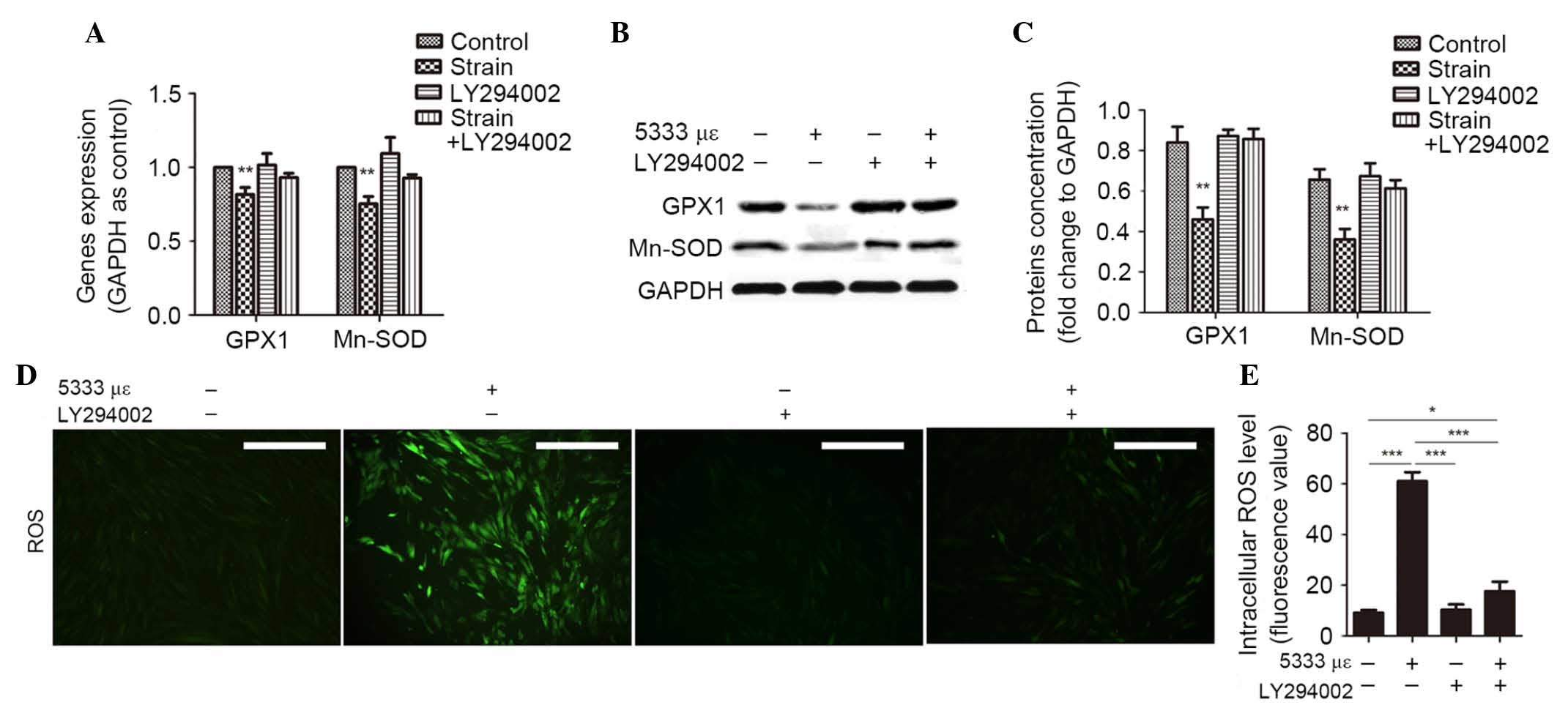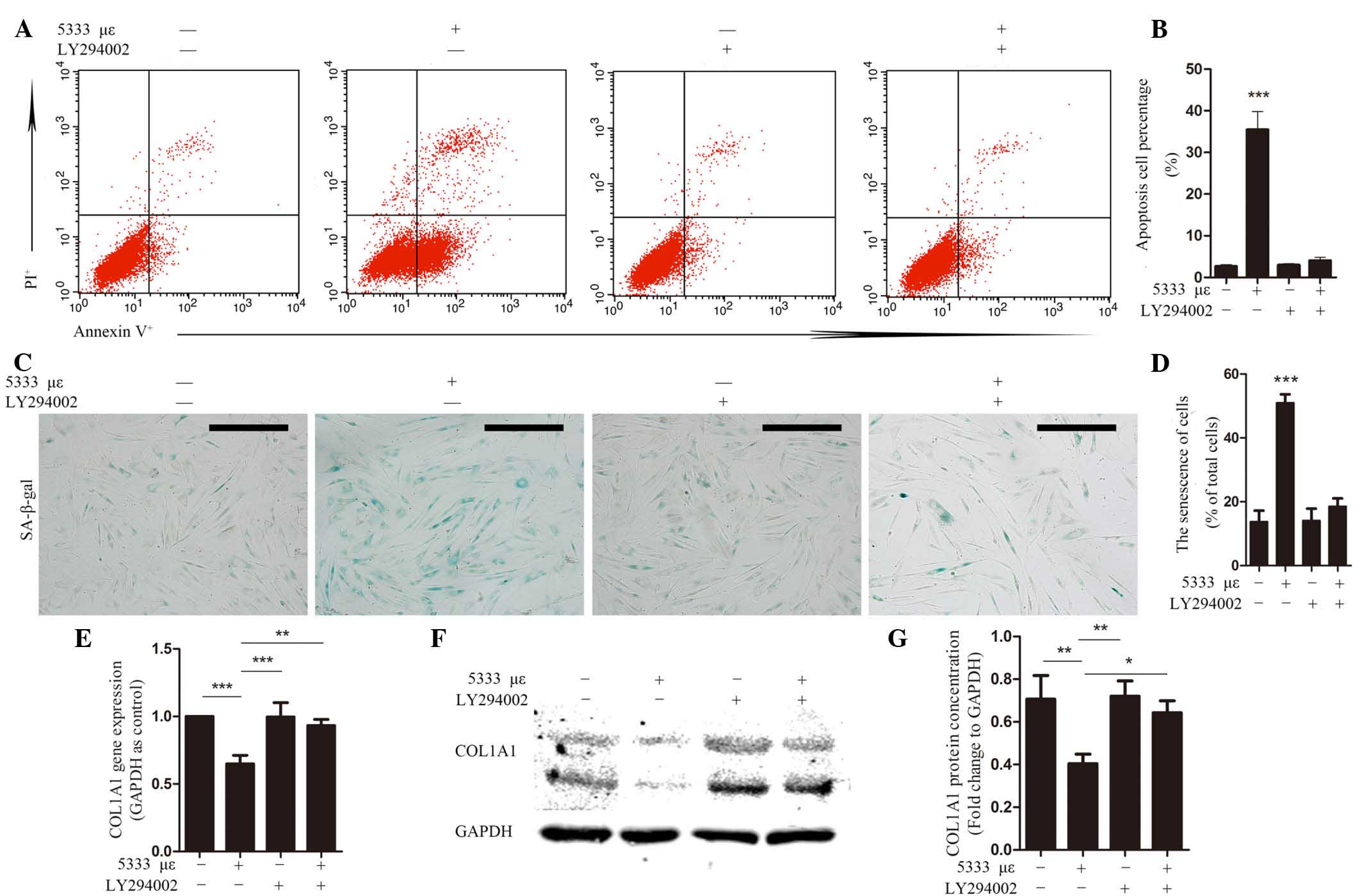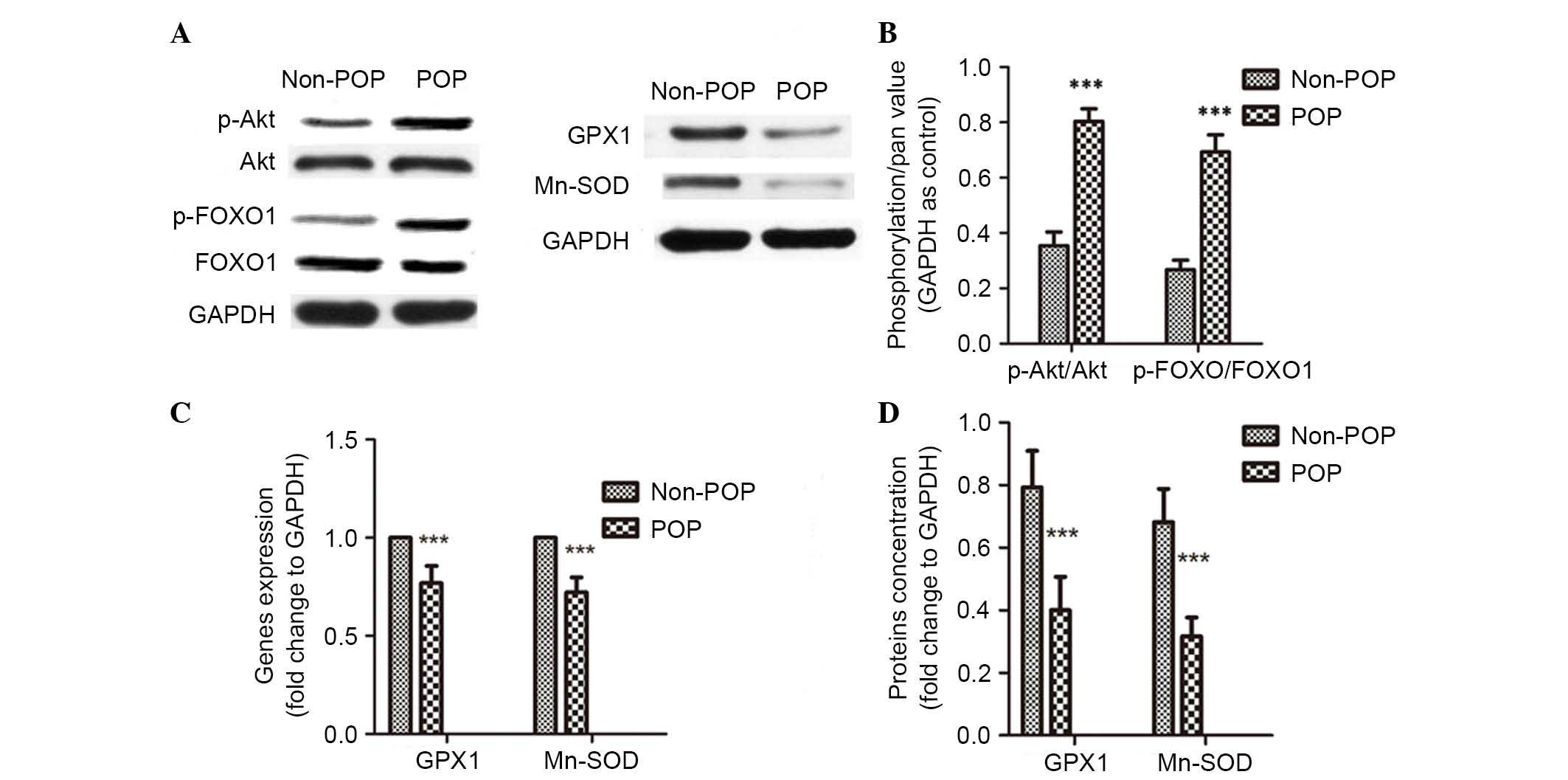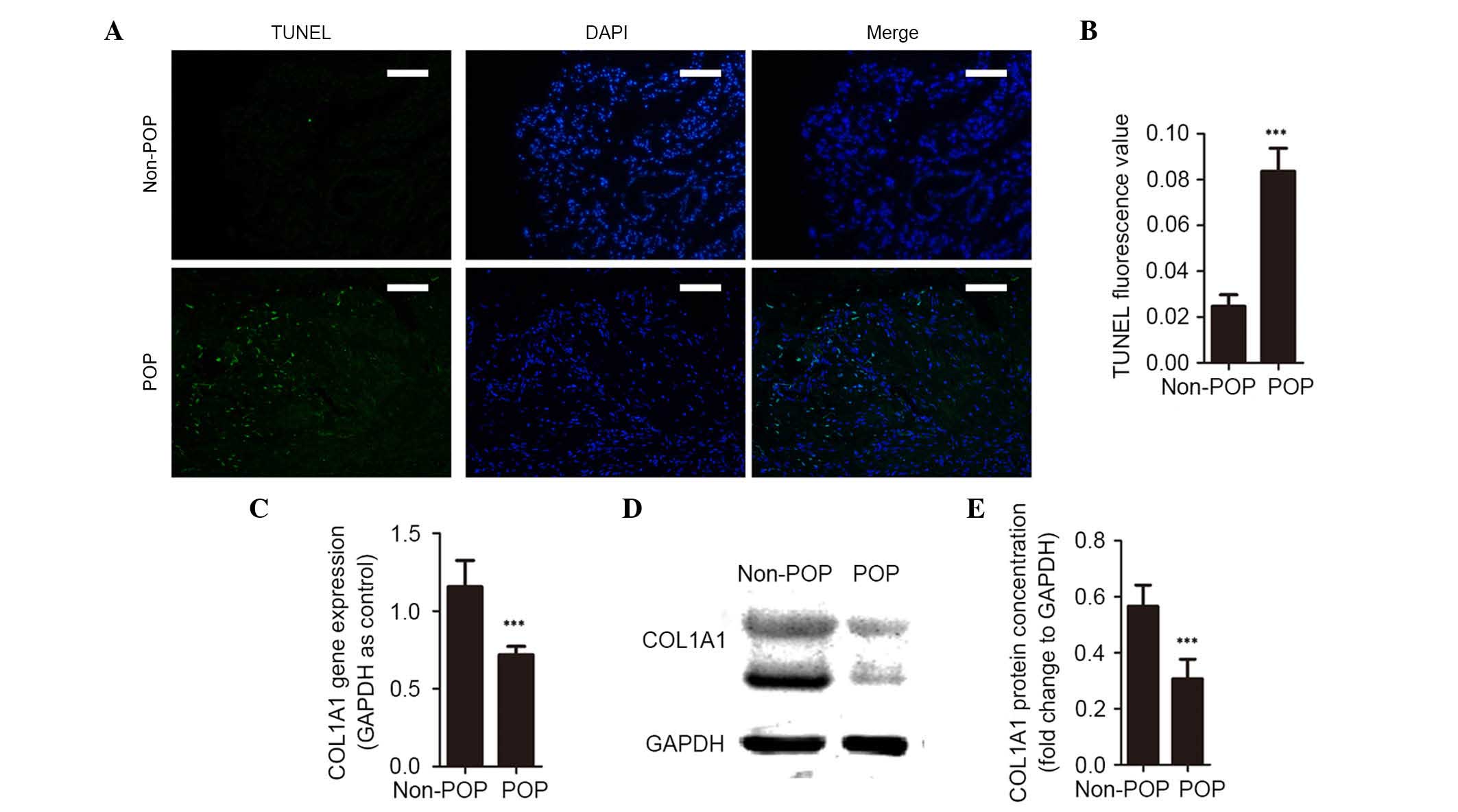|
1
|
Jelovsek JE, Maher C and Barber MD: Pelvic
organ prolapse. Lancet. 369:1027–1038. 2007. View Article : Google Scholar : PubMed/NCBI
|
|
2
|
Virtanen HS and Mäkinen JI: Retrospective
analysis of 711 patients operated on for pelvic relaxation in
1983–1989. Int J Gynaecol Obstet. 42:109–115. 1993. View Article : Google Scholar : PubMed/NCBI
|
|
3
|
Gyhagen M, Bullarbo M, Nielsen TF and
Milsom I: Prevalence and risk factors for pelvic organ prolapse 20
years after childbirth: A national cohort study in singleton
primiparae after vaginal or caesarean delivery. BJOG. 120:152–160.
2013. View Article : Google Scholar
|
|
4
|
Chow D and Rodríguez LV: Epidemiology and
prevalence of pelvic organ prolapse. Curr Opin Urol. 23:293–298.
2013. View Article : Google Scholar : PubMed/NCBI
|
|
5
|
Miedel A, Tegerstedt G, Mæhle-Schmidt M,
Nyrén O and Hammarström M: Nonobstetric risk factors for
symptomatic pelvic organ prolapse. Obstet Gynecol. 113:1089–1097.
2009. View Article : Google Scholar : PubMed/NCBI
|
|
6
|
Paterno J, Vial IN, Wong VW, Rustad KC,
Sorkin M, Shi Y, Bhatt KA, Thangarajah H, Glotzbach JP and Gurtner
GC: Akt-mediated mechanotransduction in murine fibroblasts during
hypertrophic scar formation. Wound Repair Regen. 19:49–58. 2011.
View Article : Google Scholar
|
|
7
|
Zhou Y, Ling O and Bo L: Expression and
significance of lysyl oxidase-like 1 and fibulin-5 in the cardinal
ligament tissue of patients with pelvic floor dysfunction. J Biomed
Res. 27:23–28. 2013. View Article : Google Scholar : PubMed/NCBI
|
|
8
|
Budatha M, Silva S, Montoya TI, Suzuki A,
Shah-Simpson S, Wieslander CK, Yanagisawa M, Word RA and Yanagisawa
H: Dysregulation of protease and protease inhibitors in a mouse
model of human pelvic organ prolapse. PloS One. 8:e563762013.
View Article : Google Scholar : PubMed/NCBI
|
|
9
|
Li BS, Hong L, Min J, Wu DB, Hu M and Guo
WJ: The expression of glutathione peroxidase-1 and the anabolism of
collagen regulation pathway transforming growth
factor-beta1-connective tissue growth factor in women with uterine
prolapse and the clinic significance. Clin Exp Obstet Gynecol.
40:586–590. 2013.PubMed/NCBI
|
|
10
|
Konstantonis D, Papadopoulou A, Makou M,
Eliades T, Basdra E and Kletsas D: The role of cellular senescence
on the cyclic stretching-mediated activation of MAPK and ALP
expression and activity in human periodontal ligament fibroblasts.
Exp Gerontol. 57:175–180. 2014. View Article : Google Scholar : PubMed/NCBI
|
|
11
|
Yue Y, Lypowy J, Hedhli N and Abdellatif
M: Ras GTPase-activating protein binds to Akt and is required for
its activation. J Biol Chem. 279:12883–12889. 2004. View Article : Google Scholar : PubMed/NCBI
|
|
12
|
Nho RS, Xia H, Kahm J, Kleidon J, Diebold
D and Henke CA: Role of integrin-linked kinase in regulating
phosphorylation of Akt and fibroblast survival in type I collagen
matrices through a beta1 integrin viability signaling pathway. J
Biol Chem. 280:26630–26639. 2005. View Article : Google Scholar : PubMed/NCBI
|
|
13
|
Thompson WR, Rubin CT and Rubin J:
Mechanical regulation of signaling pathways in bone. Gene.
503:179–193. 2012. View Article : Google Scholar : PubMed/NCBI
|
|
14
|
Xue Z, Zhang W, Desai LP, Gao H, Gunst SJ
and Tepper RS: Increased mechanical strain imposed on murine lungs
during ventilation in vivo depresses airway responsiveness and
activation of protein kinase Akt. J Appl Physiol (1985).
114:1506–1510. 2013. View Article : Google Scholar
|
|
15
|
Boccafoschi F, Bosetti M, Sandra PM,
Leigheb M and Cannas M: Effects of mechanical stress on cell
adhesion: A possible mechanism for morphological changes. Cell Adh
Migr. 4:19–25. 2010. View Article : Google Scholar :
|
|
16
|
Premaraj S, Souza I and Premaraj T:
Mechanical loading activates β-catenin signaling in periodontal
ligament cells. Angle Orthod. 81:592–599. 2011. View Article : Google Scholar : PubMed/NCBI
|
|
17
|
Hong SS, Ding WJ, Wu DB, Min J, Hong L, et
al: Effects of oxidative damage in human parametrial ligament
fibroblasts induced by mechanical stress. Chin J Clinicians
(Electronic Edition). 7:10775–10779. 2013.
|
|
18
|
Usta A, Guzin K, Kanter M, Ozgül M and
Usta CS: Expression of matrix metalloproteinase-1 in round ligament
and uterosacral ligament tissue from women with pelvic organ
prolapse. J Mol Histol. 45:275–281. 2014. View Article : Google Scholar
|
|
19
|
Kim EJ, Chung N, Park SH, Lee KH, Kim SW,
Kim JY, Bai SW and Jeon MJ: Involvement of oxidative stress and
mitochondrial apoptosis in the pathogenesis of pelvic organ
prolapse. J Urol. 189:588–594. 2013. View Article : Google Scholar
|
|
20
|
Zhang X, Tang N, Hadden TJ and Rishi AK:
Akt, FoxO and regulation of apoptosis. Biochim Biophys Acta.
1813:1978–1986. 2011. View Article : Google Scholar : PubMed/NCBI
|
|
21
|
Fu Z and Tindall DJ: FOXOs, cancer and
regulation of apoptosis. Oncogene. 27:2312–2319. 2008. View Article : Google Scholar : PubMed/NCBI
|
|
22
|
Downing JR: A new FOXO pathway required
for leukemogenesis. Cell. 146:669–670. 2011. View Article : Google Scholar : PubMed/NCBI
|
|
23
|
Tzivion G and Hay N: PI3K-AKT-FoxO axis in
cancer and aging. Biochim Biophys Acta. 1813:19252011. View Article : Google Scholar : PubMed/NCBI
|
|
24
|
Hong S, Li H, Wu D, Li B, Liu C, Guo W,
Min J, Hu M, Zhao Y and Yang Q: Oxidative damage to human
parametrial ligament fibroblasts induced by mechanical stress. Mol
Med Rep. 12:5342–5348. 2015.PubMed/NCBI
|
|
25
|
Ding WJ, Hong SS, Min J, Fang G, Zhang X,
Hu M, Yang Q and Hong L: Preliminary study on primary culture of
human parametrial ligament fibroblasts. Medical Journal of Wuhan
University. 35:16–19. 2014.
|
|
26
|
Livak KJ and Schmittgen TD: Analysis of
relative gene expression data using real-time quantitative PCR and
the 2(−delta delta C(T)) method. Methods. 25:402–408. 2001.
View Article : Google Scholar
|
|
27
|
Dimri GP, Lee X, Basile G, Acosta M, Scott
G, Roskelley C, Medrano EE, Linskens M, Rubelj I, Pereira-Smith O,
et al: A biomarker that identifies senescent human cells in culture
and in aging skin in vivo. Proc Natl Acad Sci USA. 92:9363–9367.
1995. View Article : Google Scholar : PubMed/NCBI
|
|
28
|
Franklin JL: Redox regulation of the
intrinsic pathway in neuronal apoptosis. Antioxid Redox Signal.
14:1437–1448. 2011. View Article : Google Scholar :
|
|
29
|
Labunskyy VM and Gladyshev VN: Role of
reactive oxygen species-mediated signaling in aging. Antioxid Redox
Signal. 19:1362–1372. 2013. View Article : Google Scholar :
|
|
30
|
Finkel T and Holbrook NJ: Oxidants,
oxidative stress and the biology of ageing. Nature. 408:239–247.
2000. View
Article : Google Scholar : PubMed/NCBI
|
|
31
|
Mori R, Tanaka K, de Kerckhove M, Okamoto
M, Kashiyama K, Tanaka K, Kim S, Kawata T, Komatsu T, Park S, et
al: Reduced FOXO1 expression accelerates skin wound healing and
attenuates scarring. Am J Pathol. 184:2465–2479. 2014. View Article : Google Scholar : PubMed/NCBI
|
|
32
|
Danciu TE, Gagari E, Adam RM, Damoulis PD
and Freeman MR: Mechanical strain delivers anti-apoptotic and
proliferative signals to gingival fibroblasts. J Dent Res.
83:596–601. 2004. View Article : Google Scholar : PubMed/NCBI
|
|
33
|
Chae HD and Broxmeyer HE: SIRT1 deficiency
downregulates PTEN/JNK/FOXO1 pathway to block reactive oxygen
species-induced apoptosis in mouse embryonic stem cells. Stem Cells
Dev. 20:1277–1285. 2011. View Article : Google Scholar :
|















